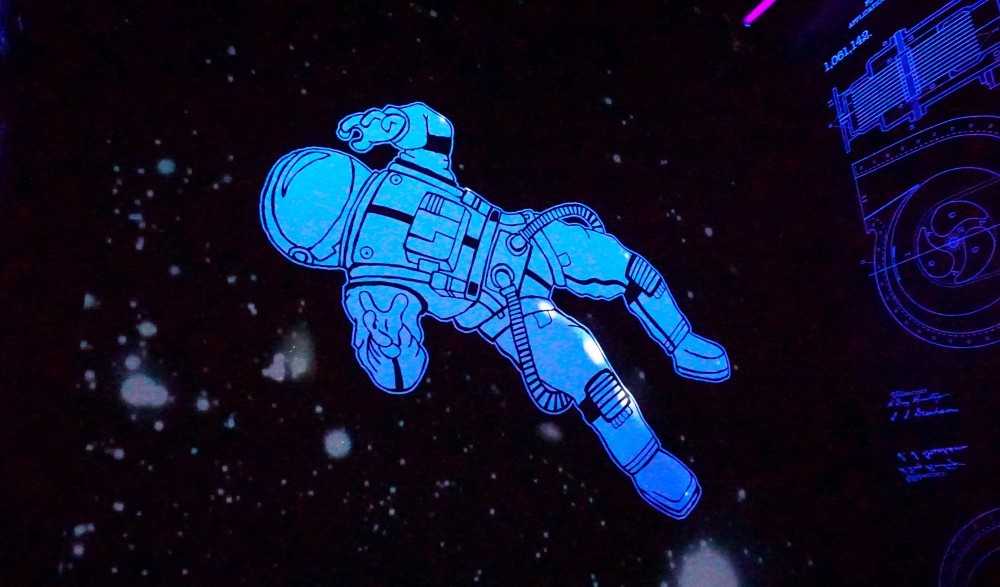An astronaut? Me?

On February 16, I was bombarded by messages: the news was announcing that the European Space Agency (ESA) was going to open vacancies in the astronaut corps. Many of my acquaintances had seen the news and had written to me, curious to know whether I was going to sign up or encouraging me to do so. Obviously, when you’ve spent 20 years telling everyone that what you want most in the world is to be an astronaut, people remember. The truth is that, in one way or another, I had always be ready for this, and I was hit by a bit of stage fright, so I said, “who do I think I am trying to be an astronaut”… Well, I had apparently been doing it for awhile.
Ever since I gave up the idea of being a dentist or a tennis player, at the age of 10 I got it in my head that I wanted to be an astronaut. My parents noticed that I was absolutely fascinated by the universe: I could spend hours learning about constellations, looking for planets, watching movies or documentaries about space or even getting up early so I wouldn’t miss the launch of the Space Shuttle. Whenever anyone asked what I wanted to be when I grew up, I always said (and, indeed, I still say): an astronaut. When I went on to high school, I made a list of the “important” things to achieve that: not get dizzy, not be claustrophobic, study a science or technology degree, handle stress well, things like that. Even today, I’m still trying to attain those skills that could help me do it. I studied aerospace engineering, I signed up for a sailing group and I got into climbing (which are highly valued activities), now I work in operations (where at least I see the astronauts every day on the screens). It seemed like my big handicap would be my height, but fortunately, for these vacancies, they have lowered the minimum height and I can just barely get in.
To be honest, applying for the position is not very difficult if you meet the basic requirements: be part of one of the ESA member states, have at least a master’s degree and three years of professional experience in a scientific/technical field, have a level of English of at least C1 and be in good health. You must also submit certain documentation: CV, letter of motivation, photocopy of your passport, private pilot medical certificate. And answer a questionnaire with around 20 questions, all related to the basic requirements and certain qualities that are required for the position: whether you know how to swim, you are willing to undergo scientific studies, whether you work anywhere in which you have responsibilities, or whether you conduct activities with a certain level of stress, such as speleology or expeditions in adverse climates, for example… The medical certificate is more complete than an exam for a driver’s license, but not at all supernatural: analytics, electrocardiogram, vision and hearing tests and some psychological questions.
The questionnaire is practically the most important thing of all, used to eliminate 90% of the applicants. As astronaut Matthias Maurer explained in the presentation of the positions “A ‘no’ on a question that’s supposed to be a ‘yes’ is an automatic disqualification”. I reviewed the questionnaire over 30 times during the more than two months that the process lasted.
Once I had sent that, the only thing left to do was to wait. The process is comprised of six phases that will go until October 2022. The first phase consists of an initial screening based on the documents and the information submitted. If you pass this first phase, those selected will have to pass cognitive, technical, motor skill and personality tests. The third phase consists of psychometric tests, group and individual exercises and practical tests. The fourth round tests physical and mental skills compared to medical standards for aerospace missions. The fifth round consists of facing a panel where applicants are interviewed regarding technical skills and behavior. The final stage is the last selection phase in which applicants will undergo a final interview attended by the ESA director.
In conclusion, they are looking for perfection, and as astronaut Matthias Maurer said, “The hardest thing about being an astronaut is passing the tests to be one.” The competition is massive: over 22,000 applications for 4 or 6 positions. The ESA plans to choose 50% women, who make up 24% of the total applicants. Does that mean that there are more possibilities? It would be easier for me to win the grand prize in the Christmas lottery. Wish me luck! Although my poor mother…
Author: Inés Sánchez Barbero